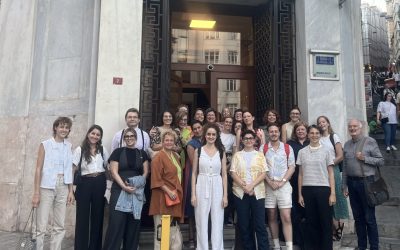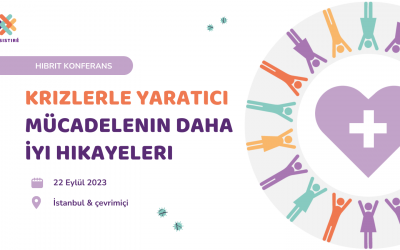During the pandemic, policies had considerable impact on vulnerable people, exacerbating existing inequalities. Civil society organisations (CSOs) were quick to react to this situation, providing strategies and concrete measures to mitigate their effect. In its third cycle of qualitative research, RESISTIRE has identified and analysed a set of initiatives carried out by civil society during the pandemic that proved to be effective in mitigating gender and other inequalities.
– mapping of 128 CSO initiatives representing promising practices of support provision to meet the needs of vulnerable people during the pandemic.
– desk research and semi-structured interviews with representatives of 31 selected initiatives for further analysis. The data were generated by 30 partners and national researchers representing each country considered by the project.
Key learnings from CSOs during the pandemic
During the Covid-19 pandemic, CSOs were exemplar in navigating the challenges and in offering their support to vulnerable people. How did they manage? Here are a few features and actions identified in our report:
- To respond quickly to the crisis situation, CSOs used good improvisational skills: this ability was the product of the tension between experience and creativity, and the result of reflexivity within organisations and attention to volunteers and staff skills and autonomy.
- Mutual trust was the backbone on which the CSOs’ activities were built:
- Empathy and trust with users and beneficiaries, considered as agents of their own change, and supported through tailored responses that reflect the differences between people;
- Trust among the initiative’s participants, with attention paid to the well-being of staff and/or volunteers and with the engagement of all actors in defining processes;
- Communication activities that build trust and awareness with the general public, mobilising people, creating solidarity, changing perspectives on vulnerabilities;
- Mutual trust with other public and private organisations in order to create collaborations that allow the sharing of knowledge and resources.
- A continuous process of networking:
- Connections built before the crisis proved to be fundamental for responding quickly to the crisis;
- The mobilisation of volunteers and solidarity, as well as building on existent alliances between CSOs, was one of the main solutions for filling in the gaps left by the public authorities;
- Many CSOs underscored the attention they paid to providing support also to those in need who are usually ‘hard to reach’ and building connections with gatekeepers; consequently, taking these people into account was also important when monitoring an initiative’s results;
- A strong effort was observed to improve the ability of fundraising.
- Attention to diversity and the use of an intersectional approach not only in relation to users but also within the CSOs themselves.
CSOs’ institutional framework
Organisations’ specific institutional frameworks had a strong influence in these dynamics:
-
- Less bureaucracy and resistance to change in the context of the pandemic crisis allowed many CSOs to test innovative solutions.
- The pandemic showed how it is possible and necessary to increase funding from public authorities to CSOs.
- Public authorities in many cases recognised the fundamental intermediary role that the CSOs performed during the pandemic by their greater predisposition to collaborate with them. However, there are also various cases where these collaborations were not possible or where the public authorities hindered the work of CSOs.
Recommendations for decision-makers
Based on the empirical mapping and on the analysis of the initiatives, key recommendations for decision-makers include:
-
- To become sustainable both economically and over time, CSOs need to be able to count on secure, sufficient, and long-term forms of funding from public authorities that allow for long-term planning.
- The need to change the framework from emergency intervention to prevention, with the introduction of policies that structurally address long-lasting issues such as poverty, housing, healthcare, etc.
- When dealing with issues that impact gender and other inequalities, it is essential that CSOs that interact with the particular vulnerable groups participate in the policy-making processes in order to include first-hand experience of what is happening in the field.
- If new policies creating restrictions on freedom of movement are needed in the future, the severity of their social consequences, including in the long-term, must be given greater consideration in their design process through specific impact assessments.
- When taking the decision to close or suspend a public service (e.g. school), it is essential to consider the secondary and long-term consequences of such an action (e.g. the decreased possibility of detecting domestic violence with online schooling).



